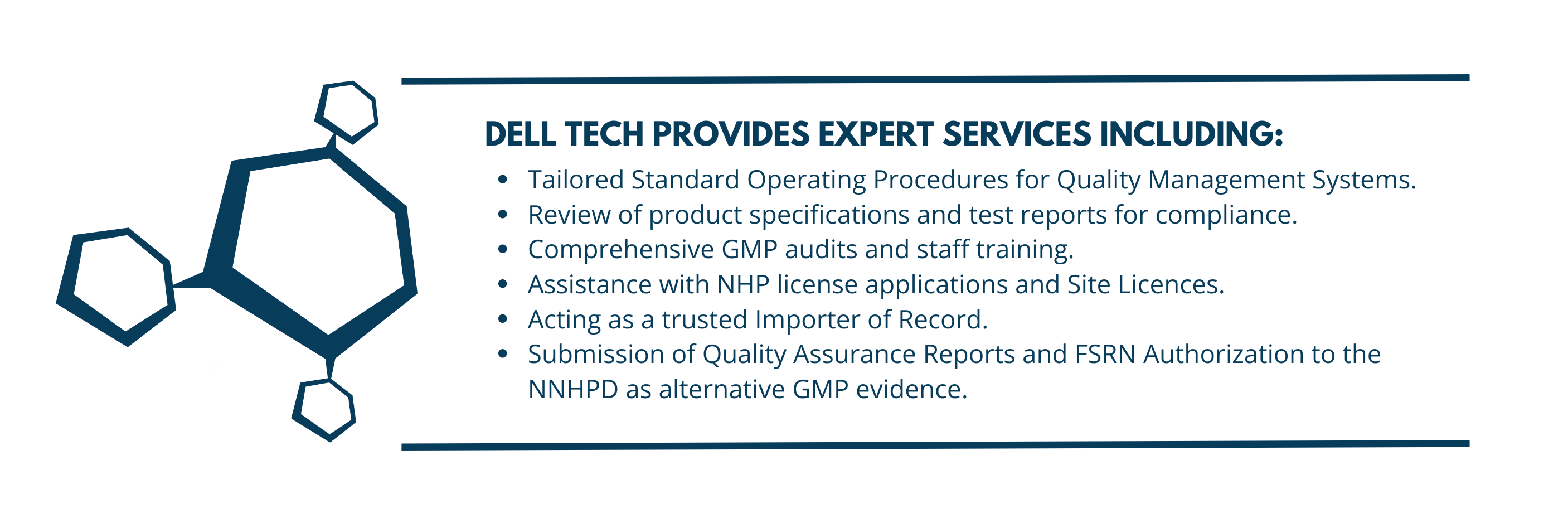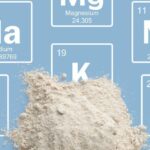Navigating Natural Health Products (NHPs) Quality Assurance in Canada
By: Ivy Tang, PRINCIPAL REGULATORY CONSULTANT, email
Understanding the Natural Health Products Regulations in Canada
Navigating the landscape of Natural Health Products (NHPs) in Canada requires a thorough understanding of the regulatory framework governing these essential health products. Natural Health Products encompass a diverse range of items, including probiotics, herbal remedies, vitamins, minerals, homeopathic medicines, and amino acids, all of which fall under the stringent Natural Health Products Regulations. To sell Natural Health Products legally, manufacturers and importers must secure a product licence from the Natural and Non-prescription Health Products Directorate (NNHPD) and obtain a Site Licence (SL) for their operations in Canada. Ensuring the health and safety of Canadians is paramount, and this is achieved through the implementation of Good Manufacturing Practices (GMP) and robust Quality Assurance (QA) systems. These standards not only protect consumers but also enhance the integrity and marketability of Natural Health Products.
In this guide, we will review the critical components of NHP regulations, GMP requirements, and how businesses can effectively comply to thrive in this highly regulated sector.
Good Manufacturing Practices and Quality Assurance
Quality Assurance (QA) involves developing and implementing systems, processes, and procedures to ensure products meet quality standards. QA systems are often based on Good Manufacturing Practice (GMP) requirements, which are continuous measures aimed at ensuring quality control and risk management. For instance, even if a finished Natural Health Product (NHP) passes its specification tests, packaging the product in a facility lacking GMP could lead to contamination. Therefore, GMP compliance is essential to guarantee the quality of an NHP before it reaches the Canadian market.
Who Needs GMP?
In Canada, all manufacturers, packagers, labellers, and importers of Natural Health Products (NHPs) must adhere to GMP requirements as outlined in the NHP Regulations and obtain a Site Licence from the NNHPD. This licence authorizes the licensee to perform the activities included on the licence. Distributors and storage sites must also comply with Good Manufacturing Practices but do not require a site licence. For Natural Health Products that are manufactured, packaged, and labeled at foreign sites, the Canadian importer is responsible for demonstrating that these foreign entities comply with GMP standards.
The 4 ‘P’s’ of GMPs
The NHP Regulations outline GMPs, which are divided into four categories: Places, People, Processes, and Products.
First – Places: Premises and equipment must be designed and maintained to prevent contamination and ensure cleanliness. Facilities should maintain detailed records, including floor plans, maintenance logs, and pest control documentation, to demonstrate GMP compliance. Equipment must undergo regular maintenance, cleaning, and calibration to avoid contamination from dust and foreign materials. Evidence of compliance includes maintenance schedules, cleaning logs, and calibration records.
Second – People: This category focuses on ensuring that individuals involved in manufacturing, labelling, importing, and packaging are properly trained and competent. This includes having the right qualifications and ongoing training. Compliance requires maintaining and regularly updating records of education, training, experience, and professional development. The Quality Assurance Person (QAP) oversees sampling, testing, documentation, and release procedures to ensure NHPs are suitable for sale. They are responsible for approving or rejecting formulations, materials, and finished products, reviewing batch records, managing product deviations, handling returns, and investigating product complaints with corrective actions. The Quality Assurance Person must also avoid conflicts of interest, such as being involved in sales.
Third – Processes: This involves maintaining sanitation and hygiene to prevent contamination and ensure NHP quality. Compliance requires a documented facility sanitation program, including cleaning procedures, waste disposal, and equipment storage, as well as a hygiene program for personnel that covers PPE use, personal cleanliness, and contamination prevention. Evidence of compliance includes hygiene training logs, SOPs, cleaning schedules, and detailed production documents.
Fourth – Product: Lastly, the product itself must meet Good Manufacturing Practices requirements to ensure safety, efficacy, and quality. This includes verifying the identity and purity of each NHP, maintaining potency through stability testing, and adhering to specified tolerances for active ingredients and contaminants. Manufacturers must keep detailed batch records to document the manufacturing process and conduct stability studies to establish expiry dates. Accurate labelling is crucial for compliance and consumer awareness, while a rapid and complete recall procedure must be in place to manage quality issues effectively. By addressing these components, manufacturers can uphold high standards and comply with Canadian regulations
NHP GMPs and Quality Assurance
An NHP must meet specifications for identity, purity, potency, and various tolerances. A thorough testing program is recommended, involving both initial and periodic testing of lots, with certain exemptions available under specific conditions, such as low water activity or organic certification. Proper documentation, including batch records and Certificates of Analysis (CoAs), is crucial to support these exemptions.
A stability program determines how long a Natural Health Product remains within approved specifications under recommended storage conditions. Manufacturers and importers must use stability studies or similar data to set and adjust expiry dates, ensure label claims are met, and display the lot number and expiry date on labels.
Maintaining samples in their final packaging provides evidence of product quality for customer complaints or recalls. Manufacturers, importers, and distributors must keep sufficient samples from each lot in final trade packages, stored under the same conditions as the product for sale, for at least one year past the expiry date.
All parties involved—manufacturers, packagers, labellers, importers, and distributors—must maintain detailed batch production, packaging, and labelling records according to master production documents. These records must include evidence of expiry dates, testing of raw and packaging materials, and adherence to specifications. Records should be retained for at least one year after the product’s expiry date.
The recall system requires detailed written procedures for managing recalls, assigning responsibilities, executing recalls, and tracking distribution. Recalled products must be stored securely until further action is taken, and a final report must document the recall’s progress and outcomes. Evidence of compliance includes past recall records, distribution documentation, mock recall reports, and standard operating procedures (SOPs).
All parties handling sterile NHPs must follow Health Products and Food Branch Inspectorate guidelines, as well as non-sterile requirements. Compliance evidence includes batch records, testing results, validation and environmental monitoring records, microbiology training, and SOPs for clean room maintenance.
How to Begin Developing a Good Manufacturing Practices Quality System
To start developing your Quality Management System (QMS), familiarize yourself with the NHP Regulations and Good Manufacturing Practices requirements relevant to your role (e.g., manufacturer, packager, labeller). Allocate sufficient resources to create a quality policy, and document your processes and procedures. Assign a QAP and implement necessary training programs. Establish quality standards and monitoring procedures, set up a document control system, and maintain accurate records. Regularly conduct internal audits to assess the QMS’s effectiveness and implement corrective and preventive actions as needed.
Conclusion
Quality assurance and Good Manufacturing Practices (GMPs) are essential to ensuring the safety, efficacy, and reliability of NHPs. By adhering to these rigorous standards, manufacturers, packagers, labellers, and importers can effectively prevent contamination, ensure product consistency, and meet regulatory requirements. QA provides a framework for systematically monitoring and improving processes, while Good Manufacturing Practices establish critical controls and procedures necessary for maintaining high-quality standards. Together, they safeguard public health by ensuring that products meet their specifications and perform as intended, thereby fostering consumer trust and regulatory compliance in a highly regulated market.
How Dell Tech Can Help

Unlock the full potential of your Natural Health Products business with Dell Tech’s expert services! We specialize in crafting tailored Standard Operating Procedures for your Quality Management System, ensuring that your operations meet the highest industry standards. Our team will meticulously review your finished product specifications and test reports, conduct comprehensive GMP audits, and provide essential GMP training to keep your staff informed and compliant.
Looking to navigate the regulatory landscape? We can seamlessly prepare and submit your NHP license applications, assist you in obtaining your Site Licence, and even act as your trusted Importer of Record. Dell Tech is fully equipped to submit alternative GMP evidence to the NNHPD, including Quality Assurance Reports (QAR) and Foreign Site Reference Number (FSRN) Authorization. We can also support your application for a Drug Establishment Licence (DEL).
Don’t leave your compliance to chance—partner with Dell Tech for a smoother, more efficient path to regulatory success. Contact us today to learn how we can elevate your business and ensure your products meet all necessary standards!






